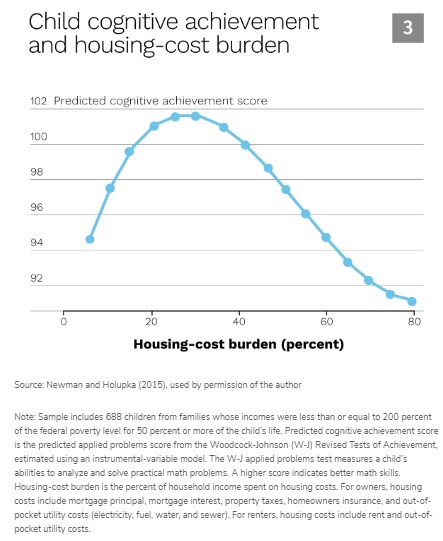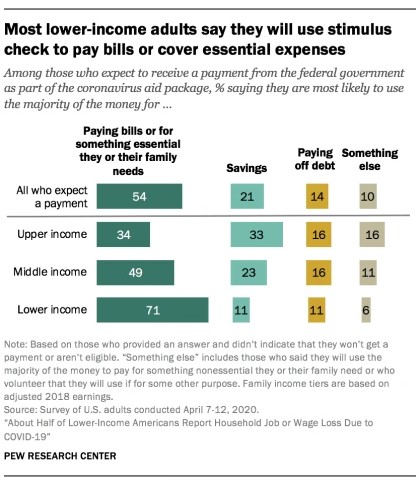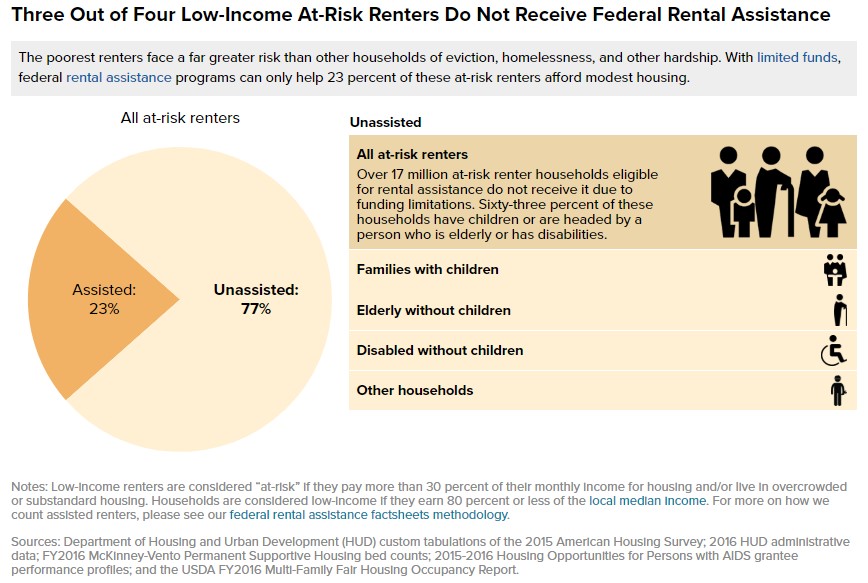Housing, SNAP, and the Economy
For millions of families, rent was due May 1, and while affordable housing has been an issue for years, the crisis has exacerbated the affordable housing crisis. Before the pandemic, 11 million low-income families lived in housing that cost more than half of their income, and every 3 out of 4 low-income renters who qualified for federal housing assistance were unable to receive it (see Figure 1). People of color face particular challenges, as a disproportionate number of renters are Black, Latino, and other minorities.
Research shows that spending more than 30 percent of a household’s income on housing takes its toll. In cities where households typically spend more than 32 percent of income on housing, homelessness rates rapidly increase. In Los Angeles, median-income residents spend more than 45 percent of their income on housing. In 2017, LA and LA County had the second largest number of people experiencing homelessness in the country and one of the highest homeless rates in California. While only 15 percent of the American population live in these areas, the areas account for 47 percent of the homeless population.
Homelessness isn’t just a moral issue; it’s an economic one too. It costs cities more money to ignore homelessness than to intervene and find long-term affordable housing solutions. An analysis on the city of Orlando’s homelessness population estimated that the city was spending roughly $31,000 per homeless individual. This money went towards costs associated with law-enforcement arresting and transporting homeless individuals to jail for non-violent offenses – such as sleeping in parks – and paying for emergency medical and psychiatric issues. In contrast, providing chronically homeless individuals in Orlando with case managers would cost an estimated $10,000 per individual, (ensuring homeless individuals receive the care and support they need while) thus saving taxpayers millions of dollars over the next decade.
Investing in long-term housing solutions have a meaningful, lasting impact on families, especially on children growing up in these households. Families spending both too little and too much on housing, relative to their income, see lower cognitive scores for their children as shown in Figure 2.

There are key economic arguments for investing in food assistance along with housing policies. On top of the housing crisis, the pandemic has made it even more difficult for households to afford food, given the staggering job loss over the last two months. The Supplemental Nutrition Assistance Program (SNAP, formerly Food Stamps) is the nation’s most effective way of reducing food insecurity for millions of low-income families. SNAP has shown to increase a child’s cognitive development and improve a child’s long-term health and economic outcomes. SNAP also has a direct impact on local economies—for every SNAP dollar spent, economists estimate that it generates $1.50 to $1.80 for the local economy. Every dollar spent through SNAP can free up a dollar used towards other essential items families need such as diapers, hygiene products, and prescriptions. Increasing SNAP benefits to families struggling during this time would have an immediate, lasting effect on the economy, as well as the health and well-being of millions of American adults and children.
Providing low-income families with the resources they need to succeed is not only imperative to the long-term outcomes of households, but is also imperative to rebuilding our economy. For example, more than half of people who are eligible for their stimulus payments planned to spend those payments on bills and immediate needs. This number increases to 71 percent when looking at low-income adults (see Figure 3).

Investing in long-term housing solutions has a meaningful, lasting impact on families, especially on children growing up in these households.
